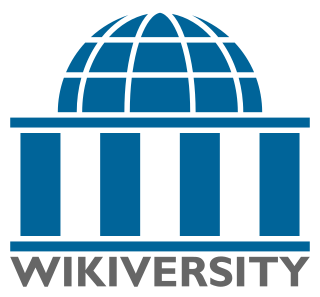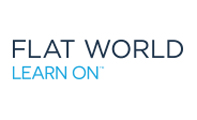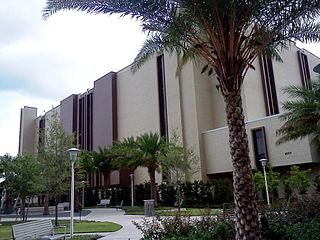
MIT OpenCourseWare is an initiative of the Massachusetts Institute of Technology (MIT) to publish all of the educational materials from its undergraduate- and graduate-level courses online, freely and openly available to anyone, anywhere. The project was announced on April 4, 2001, and uses Creative Commons Attribution-NonCommercial-ShareAlike license. The program was originally funded by the William and Flora Hewlett Foundation, the Andrew W. Mellon Foundation, and MIT. MIT OpenCourseWare is supported by MIT, corporate underwriting, major gifts, and donations from site visitors. The initiative inspired a number of other institutions to make their course materials available as open educational resources.

A textbook is a book containing a comprehensive compilation of content in a branch of study with the intention of explaining it. Textbooks are produced to meet the needs of educators, usually at educational institutions. Schoolbooks are textbooks and other books used in schools. Today, many textbooks are published in both print and digital formats.

Secondary education in Japan is split into junior high schools, which cover the seventh through ninth grade, and senior high schools, which mostly cover grades ten through twelve.

Free education is education funded through government spending or charitable organizations rather than tuition funding. Many models of free higher education have been proposed. Primary school and other comprehensive or compulsory education is free in many countries. Tertiary education is also free in certain countries, including post-graduate studies in the Nordic countries. The Article 13 of International Covenant on Economic, Social and Cultural Rights ensures the right to free education at primary education and progressive introduction of it at secondary and higher education as the right to education.

Open educational resources (OER) are teaching, learning, and research materials intentionally created and licensed to be free for the end user to own, share, and in most cases, modify. The term "OER" describes publicly accessible materials and resources for any user to use, re-mix, improve, and redistribute under some licenses. These are designed to reduce accessibility barriers by implementing best practices in teaching and to be adapted for local unique contexts.
OpenStax CNX, formerly called Connexions, is a global repository of educational content provided by volunteers. The open source platform is provided and maintained by OpenStax, which is based at Rice University. The collection is available free of charge, can be remixed and edited, and is available for download in various digital formats.
Calculus is a branch of mathematics focused on limits, functions, derivatives, integrals, and infinite series. This subject constitutes a major part of contemporary mathematics education. Calculus has widespread applications in science, economics, and engineering and can solve many problems for which algebra alone is insufficient.
An open-source curriculum (OSC) is an online instructional resource that can be freely used, distributed and modified. OSC is based on the open-source practice of creating products or software that opens up access to source materials or codes. Applied to education, this process invites feedback and participation from developers, educators, government officials, students and parents and empowers them to exchange ideas, improve best practices and create world-class curricula. These "development" communities can form ad-hoc, within the same subject area or around a common student need, and allow for a variety of editing and workflow structures.
A digital textbook is a digital book or e-book intended to serve as the text for a class. Digital textbooks may also be known as e-textbooks or e-texts. Digital textbooks are a major component of technology-based education reform. They may serve as the texts for a traditional face-to-face class, an online course or degree, or massive open online courses (MOOCs). As with physical textbooks, digital textbooks can be either rented for a term or purchased for lifetime access. While accessible, digital textbooks can be downloaded, printed, or accessed online via a compatible device. To access content online, users must often use a 3rd party hosting provider or "digital bookshelf" through which digital textbooks can be served.
OpenCourseWare (OCW) are course lessons created at universities and published for free via the Internet. OCW projects first appeared in the late 1990s, and after gaining traction in Europe and then the United States have become a worldwide means of delivering educational content.
An open textbook is a textbook licensed under an open license, and made available online to be freely used by students, teachers and members of the public. Many open textbooks are distributed in either print, e-book, or audio formats that may be downloaded or purchased at little or no cost.

Wikiversity is a Wikimedia Foundation project that supports learning communities, their learning materials, and resulting activities. It differs from Wikipedia in that it offers tutorials and other materials for the fostering of learning, rather than an encyclopedia. It is available in many languages.

FlatWorld is a publisher of college-level textbooks and educational supplements for a worldwide audience founded in 2007 as Flat World Knowledge by Eric Frank and Jeff Shelstad. It was acquired at the end of 2016 by Alastair Adam and John Eielson and its company headquarters was moved from Washington, DC, to Boston, Massachusetts. Following this acquisition, the company rebranded as FlatWorld.
Open.Michigan is a collection of open initiatives and projects at the University of Michigan (U-M). Open.Michigan supports the open access and use of U-M resources for teaching, learning, and research. Open.Michigan promotes open content licensing and supports the reuse, redistribution, and remixing of educational materials for use by others worldwide. Some of the key efforts underway under the Open.Michigan umbrella include U-M’s Open Educational Resources publishing activities, development of software tools that support creating open content, and various open content repositories.
FlexBook is a textbook authoring platform developed by the CK-12 Foundation launched in 2008, focused on textbooks for the K-12 market. Derived from the words "flexibility" and "textbook," a FlexBook allows users to produce and customize content by re-purposing educational content using different modules. FlexBooks can be designed to suit a learner's learning style, region, language, or level of skill, while adhering to the local education standards.
OpenStax is a nonprofit educational technology initiative based at Rice University. Since 2012, OpenStax has created peer-reviewed, openly-licensed textbooks, which are available in free digital formats and for a low cost in print. Most books are also available in Kindle versions on Amazon.com and in the iBooks Store. OpenStax's first textbook was College Physics, which was published online, in print, and in iBooks in 2012. OpenStax launched OpenStax Tutor Beta in June 2017, adaptive courseware based on cognitive science principles, machine learning, and OpenStax content. However, announced in October 2022 that Tutor was being discontinued.

Boundless was an American company, founded in 2011, which created free and low-cost textbooks and distributed them online. In April 2015, it was acquired by Valore. The combined company is based in Boston, Massachusetts.
This outline of open educational resources provides a way of navigating concepts and topics in relation to the open educational resources (OER) movement.
Open Course Library (OCL) is an effort by the State of Washington to identify and make available digitally, to community and technical college instructors and students across that state, free textbooks, interactive assignments, and videos. Instructional materials can be "a smorgasbord of teaching modules and exercises developed by other open-learning projects.. . Interactive-learning Web sites and even instructional videos on YouTube. . ." However, OCL is not an OER publishing project, although it did contribute to the development of some widely used resources. Goals include: lowering textbook costs for students, providing new resources for faculty to use in their courses; and fully engaging in the global OER or open educational resources discussion.

The University of South Florida Tampa Library is the main research library for the University of South Florida. Housing over 1.3 million books, academic journals and electronic resources, including 52,000 e-journal subscriptions, 443,000 e-books, and over 800 databases, the library has more than 2 million visitors each year. The library offers tutoring and writing services, laptops, a career resource center, and course reserves. The facility houses several special and digital collections, including literature, oral histories, photographs, artifacts, and the university archives. The current Dean of USF Libraries is Todd Chavez.









